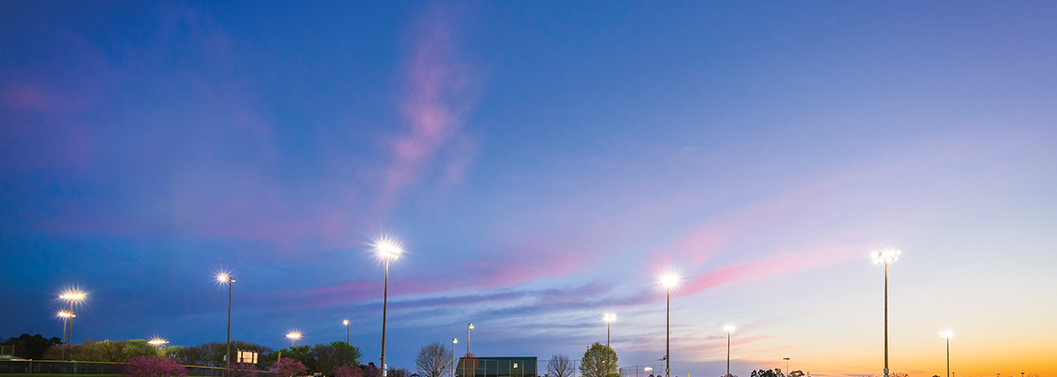PODCAST
NESFMA – Case Study: Fraise Mowing for Weed Control on Athletic Fields
PODCAST: PLAY IN NEW WINDOW | DOWNLOAD
Podcast (podcast_associations): Play in new window | Download (Duration: 7:22 — 10.1MB) | Embed
Subscribe Email | TuneIn | RSS
NEW ENGLAND BLADE: Tom Barry, CSFM – Sports Turf Manager, Greens Farms Academy, Westport, CT
INTRODUCTION
Many schools are challenged to maintain safe, uniform, and healthy playing surfaces due to intense playing schedules and repeated traffic. Fraise mowing is a renovation practice that reinvigorates the turfgrass surface and can remove shallow-rooted weeds (Sitko and Rossi, 2019). Schools in towns or states that have banned pesticides on K-8 school grounds, such as in Connecticut, have had to readjust management practices. The use of fraise mowing can be an effective practice in an integrated weed management program for athletic fields, especially where herbicides are restricted or are not allowed.
SITE CONDITIONS
Silt loam, overly compacted soils.
PROBLEM
High weed contamination (70 – 80%) of annual bluegrass (Poa annua L.) and white clover (Trifolium repens) on a heavily trafficked multi-purpose (lacrosse, soccer, flag football) middle and high school athletic field at Greens Farms Academy.
GOALS
• Eliminate a high percentage of the shallow-rooted weeds, including annual bluegrass and white clover.
• Keep the desirable populations of turfgrass species, perennial ryegrass (Lolium perenne) and Kentucky bluegrass (Poa pratensis) intact.
• Improve soil aeration and drainage.
• Have the field ready for use in late June / early July for summer lacrosse camps.
STEPS TAKEN
• Fraise mowing was performed on the field in mid-May after the conclusion of our spring sports season. We planned for the field to be out-of-play for six weeks to recover from the fraise mowing renovation process.
• The fraise mower was set to 1⁄2″ depth to remove the majority of the shallow rooted weeds, including annual bluegrass and white clover, while keeping the deeper rooted and rhizomatous desirable grasses intact.
• Immediately after the fraise mow process, the field was solid-tine aerated with 3⁄4″ tines, and overseeded with a combination of high-performing perennial ryegrass and Kentucky bluegrass cultivars to establish in the bare areas and to outcompete the germinating weeds.
The fraise mower removes two inches of the turfgrass surface and debris is removed.
• We used a Redexim 1575 disc seeder in two directions with 2 lbs/1000ft2 of Kentucky bluegrass, broadcast perennial ryegrass at 3 lbs/1000ft2, and dragged seed into aeration holes.
• Our grow-in fertility program included a starter fertilizer and a poultry manure product at seeding. Every three weeks post-germination, we sprayed the field with a wetting agent, light N application, and biostimulants.
• Once the overseeding process was completed, we top-dressed with a coarse athletic field sand to help improve soil texture and surface levels of the field, including improved drainage and root development and penetration.
• The field was irrigated with light, frequent irrigation until germination of both species occurred. After germination, the irrigation schedule was reduced, and the duration of each irrigation event increased.
RESULTS
We had great success with reducing both annual bluegrass and white clover populations, but some annual bluegrass did recover (about 10 – 15% following grow-in). We will continue to aerate and top-dress with sand to improve drainage and promote deeper rooted grasses. Clipping removal will be performed when annual bluegrass and clover are in flower. We will also look to fraise mow the field in the future (every three to five years).
WHAT WE LEARNED
The timing of an early spring fraise mow was not ideal, due to the lack of thatch development followed by intense summer annual grassy weed germination (e.g., crabgrass). Late summer-early fall is the best time to fraise mow, if an alternate field is available for sporting events.
Also, we should have increased the amount of sand used when we top-dressed to further improve drainage (basing fertility and other amendment decisions on soil test results). The additional sand would encourage deeper rooting of the desired turfgrasses grasses, while limiting the annual bluegrass and clover populations.
CONCLUSION
Fraise mowing should be considered as a tool for weed management. It can be a useful part of a comprehensive cultural program to control weed species, especially on pesticide-free athletic fields.
What is Fraise Mowing?
Fraise mowing is an aggressive cultural practice that removes a thin layer of soil and or-ganic matter from the playing surface (Henderson and Wallace, 2020). Fraise mowing machines can remove up to two inches of the turfgrass surface. It should be undertaken only under optimal turfgrass growing conditions. A fraise mowing event, in coordination with aggressive over- seeding and consistent irrigation, can produce a uniform and dense playing surface within four to eight weeks. The field must be removed from activity during the renovation process/grow-in while the field is recovering. Fraise mowing can only be considered if alternate field space is available.
Read more about fraise mowing at Benefits and Limitations of Fraise Mowing (sportsfieldmanagement.org). Henderson, Jason and Victoria Wallace. 2020. Best Management Practices for Pesticide-Free, Cool-Season Athletic Fields, Second Edition. UConn Extension. s.uconn.edu/uconnathleticfieldbmp
Sitko, C. and F. Rossi. 2019. Non-Chemical Weed Control in Amenity Grasslands via Fraise Mowing. Abstract. ASA Meeting
Funds to support creation of NESTMA BMPs and this case study, were provided by the New England Regional Turfgrass Foundation.

